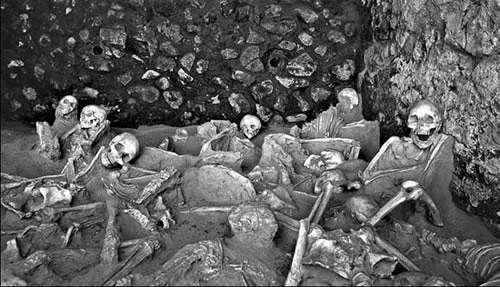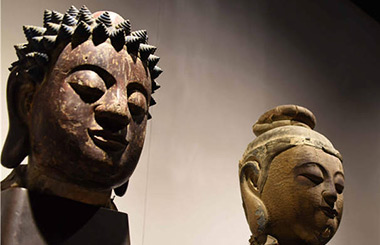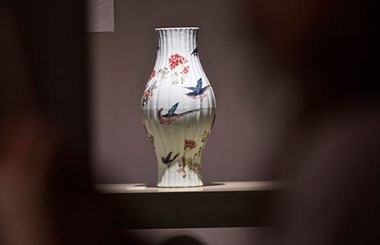 |
|
A public-private venture has been successful in preserving a city destroyed in the eruption of Mount Vesuvius. A boathouse where citizens had hoped to be rescued. [Photo/Agencies]
|
HERCULANEUM, Italy - They are poignant snapshots of sudden death: huddled clusters of skeletal remains in what were once beachfront warehouses, immortalized for eternity when Mount Vesuvius smothered this ancient Roman town in A.D. 79.
"They died of thermal shock as they were waiting to be saved via the sea," Domenico Camardo, an archaeologist, said recently.
First excavated some 30 years ago, the warehouses were recently outfitted with walkways to provide access to these chilling tableaus and will soon be open to the public on special occasions.
Reviving history for a modern audience "is one of the beautiful things we get to do," said Mr. Camardo, the lead archaeologist with the Herculaneum Conservation Project, a joint initiative of the Packard Humanities Institute, of Los Altos, California; the local artistic heritage authority; and the British School at Rome. The project, a public-private venture, has effectively managed the site for more than a decade.
Compared with its better-known Vesuvian neighbor, Pompeii, where local officials, constrained by inadequate and mismanaged government funds, have long struggled to conserve and protect the sprawling open-air site, Herculaneum has become a textbook case of successful archaeological conservation.
The "invisible work" at Herculaneum focuses on structural elements. A tunnel under the city.
























 Raymond Zhou:
Raymond Zhou: Pauline D Loh:
Pauline D Loh: Hot Pot
Hot Pot Eco China
Eco China China Dream
China Dream China Face
China Face





